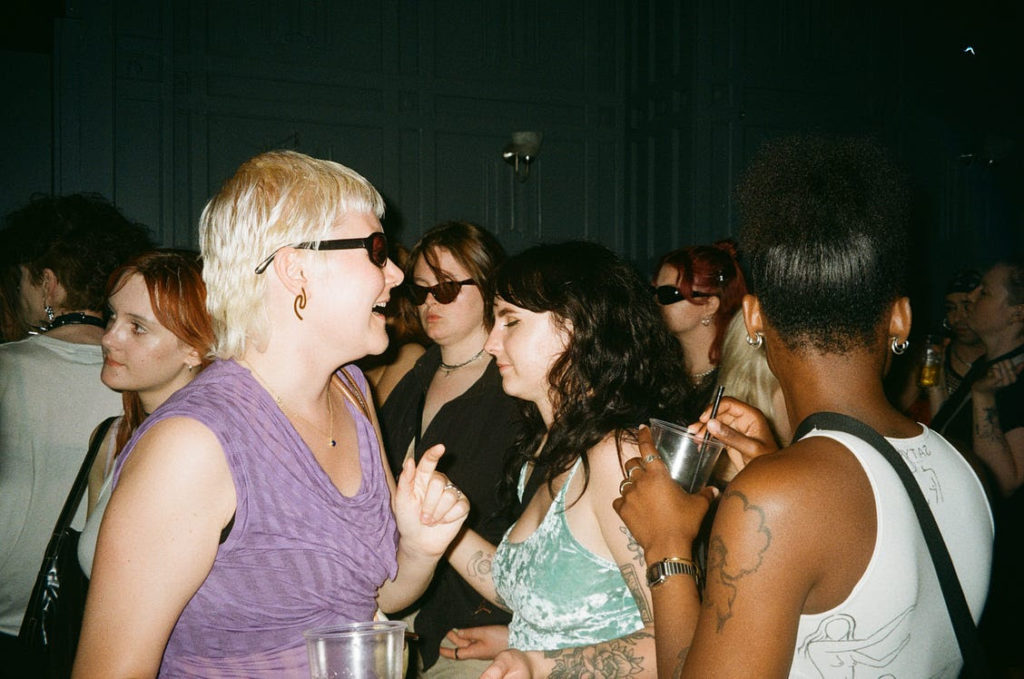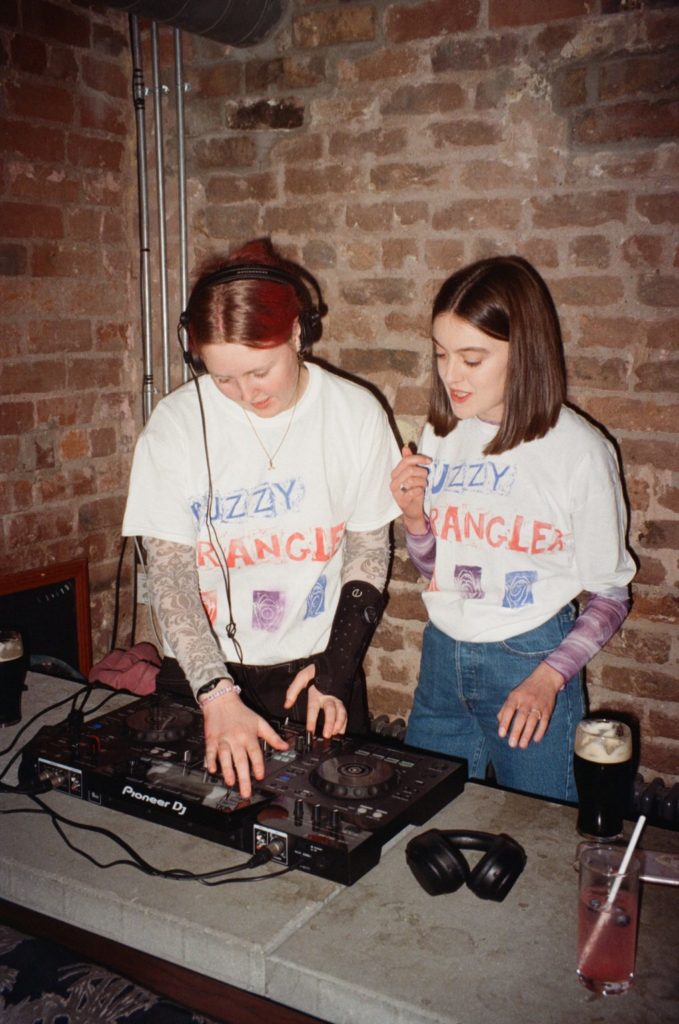Irish DJs react to new licensing reforms for 2023

Irish DJs react to new licensing reforms for 2023
Words: Eva O’Beirne
Nightclubs can stay open until six, pubs until 00:30 and off-licence hours have been extended – but is it too little too late for the Irish nightlife industry?
On Tuesday, the Minister for Tourism, Culture, Arts, Gaeltacht, Sport and Media, Catherine Martin announced the publication of the General Scheme of the Sale of Alcohol Bill which will reform and streamline licensing laws to support and stimulate the night-time economy.
The new late licences and new 06:00 nightclub licences will be given annually, meaning venues won’t have to apply in court each month.
There will be new criteria under which a complaint against a venue obtaining a licence can be made. A licence may be refused if a venue does not protect staff, patrons and performers from harassment, including sexual harassment.
There are also proposals to remove the ‘extinguishment’ model – currently, anyone wanting to open a pub or off-licence first has to buy a licence from a previous holder.
District asked numerous DJs, activists and industry members what they thought of the new legislation. Here are their thoughts.
Robbie Kitt – Dublin-based DJ and activist for Give Us The Night
Robbie Kitt is a Dublin-based DJ and electronic musician. Also known as r.kitt, you may recognise him from his work as a spokesperson for the Give Us The Night campaign, which has been advocating for positive changes to nightlife in Ireland.
On the new legislation, Robbie detailed his relief: “It’s a long time coming! There are parts that don’t go far enough but there are lots of positive aspects to the reform. There are a lot of nuanced, boring, archaic bits of our licensing system that are being removed. It would be preferable to have a dedicated nightclub licence but the nightclub permit seems like it will be relatively accessible, subject to specific conditions. Those conditions ensure, amongst other things, that the venues are providing dancing space. For the first time, premises will have to allocate a portion of their floor space specifically for dancing.”
“The government has committed to making sure the system is only covering its costs in the fees for these permits. The repeal of the Public Dancehalls Act means that dancing is no longer singled out as some sort of particularly illicit or dangerous behaviour in our licensing laws. We’re finally moving out of the stone age in many ways.”
On what is next for the industry Robbie said: “Licensing is only one obstacle that operators, artists and collectives trying to do interesting things late at night face, but it’s a big one. There are still loads of challenges relating to insurance, transport, impact on residents and sound. So it’s not like this fixes everything. However, it can’t be overstated how out of date our current system was, and this reform does allow for a huge amount more flexibility than the previous system did. Current operators will have the option to apply for a nightclub permit allowing them to go til 06:00. For the next three years, pub licence, hotel pub licence (a new licence type) and wine on licence holders can avail of this subject to conditions. Along with making the system a lot less burdensome for current operators, this option will hopefully attract new operators to the sector. This uptake will be in all likelihood, slow but it’s undoubtedly desperately needed.”
“As the campaign has highlighted many times, we’ve gone from over 520 dance spaces in the country in 2001 to less than 85 today. So it’s clear a lot of recovery has to happen within the industry before we get back to a healthy amount of venues and late-night cultural spaces.”
When asked how people can best support the Night Time Economy, Robbie said: “The best way you, the reader, can help is to contact your local representatives and tell them how welcome this reform is. If we care about these communities, we have to engage with legislators. The body of the general scheme is good but it can’t afford to be diluted. TDs and senators need to be reminded why this change is important and why it’s so desperately needed. There is no doubt they will be contacted by people who are not in favour of these changes, so they should hear all sides.”
“We have lost almost all of the physical infrastructure in which we can dance, express ourselves, engage with cultural activity and build our social lives. We need to emphasise that this needs to be moved through the Dáil without delay, there should be no more hanging about. This change is long overdue and it’s not radical. It’s the beginning of setting out conditions that can allow for Ireland to have a richly diverse night-time economy and it needs to happen as soon as possible.”

HONEYPOT – DJ Collective
Known for their support of female, non-binary and LGBTQ+ DJs, HONEYPOT focused on the idea of expansion for their club nights.
“The new proposed licensing laws are brilliant to see. Since we first became regulars on Dublin dance floors, we’ve been seeing the work of the Give Us The Night campaign and talking about the need for longer hours, but this year it’s only become more obvious for us. We’ve thrown a few HONEYPOT parties so far and the dance floor has been packed until close at every one.”
“There’s been so many amazing local parties where everyone knew that many of dancers would have stayed for many more hours if given the option. It’s also a great opportunity to book even more DJs and give them longer sets. Hopefully, it will be possible for club venues to bring this in and allow people to enjoy the night for longer.”
Bella Festa DJs
Aidan and David from Bella Festa – the self-described DJ boyband – also focused on the “huge bode of confidence” the incoming legislation has given them.
“I think we’re going to see a whole new scope of what promoters are able to achieve with longer opening times which will mean more diverse events for punters,” said David. “It’s exciting to be able to spread our wings to being able to book a roster of big acts on a night rather than being limited to just one and a support as we have for so long, longer opening hours really open up the bounds of what we’ll be able to pull off while not losing money.”
“It’s definitely exciting in terms of what people can potentially do and I am personally looking forward to seeing how it affects our culture, since we only had a limited time frame for going out we had a lot of binge drinking,” said Aidan. “I always find it so funny when we book Djs from abroad over and I tell them they’ll be playing 01:00-03:00 and they respond ‘cool! Who’s playing after us?'”
“Obviously, with these changes, it’s going to take a lot of getting used to, the first few weeks I can see being a bit hectic and mad, but once it levels off it will be great. Everyone might not want the 06:00 finish but it’s great to have the option for those who want it.”
George Feely – Dublin-based DJ
George Feely also focused on the positives and the hopeful cultural shift this legislation will bring: “It’s such a huge step in the right direction. I’ve always felt that there’s been a sort of unspoken stigma against club culture in Ireland, and that it has been directly associated with the negative sides of nightlife. It’s amazing to see the people in charge finally begin to acknowledge it for what it really is and see how important it is to so many people.”

Puzzy Wrangler – DJ Collective
The all-female Dublin-based DJ collective Puzzy Wrangler detailed the need for more cultural spaces in order for the legislation to function properly: “We’re so delighted to see that the work of Give Us The Night has made a huge step in improving Ireland’s nightlife. We’re so excited to stay boogying late in Dublin instead of waiting to go abroad! Not only is this beneficial for the venue goers, but it also allows Irish DJs to fully commit to their jobs, rather than having to take on part-time work to supplement their income. The current opening hours of late venues don’t allow artists such as DJs to pursue their careers full-time.”
“To make this legislation meaningful, we think that Dublin needs more dance halls, clubs and spaces for people to enjoy. It’s imperative that Dublin prepares for this change in nightlife culture by increasing public transport hours and wages for employees in the service industry. Overall this is a fantastic step in improving Ireland’s nightlife and a credit to the people working on Give Us The Night!”
Elsewhere on District: District presents: A Nightmare on Essex Street
